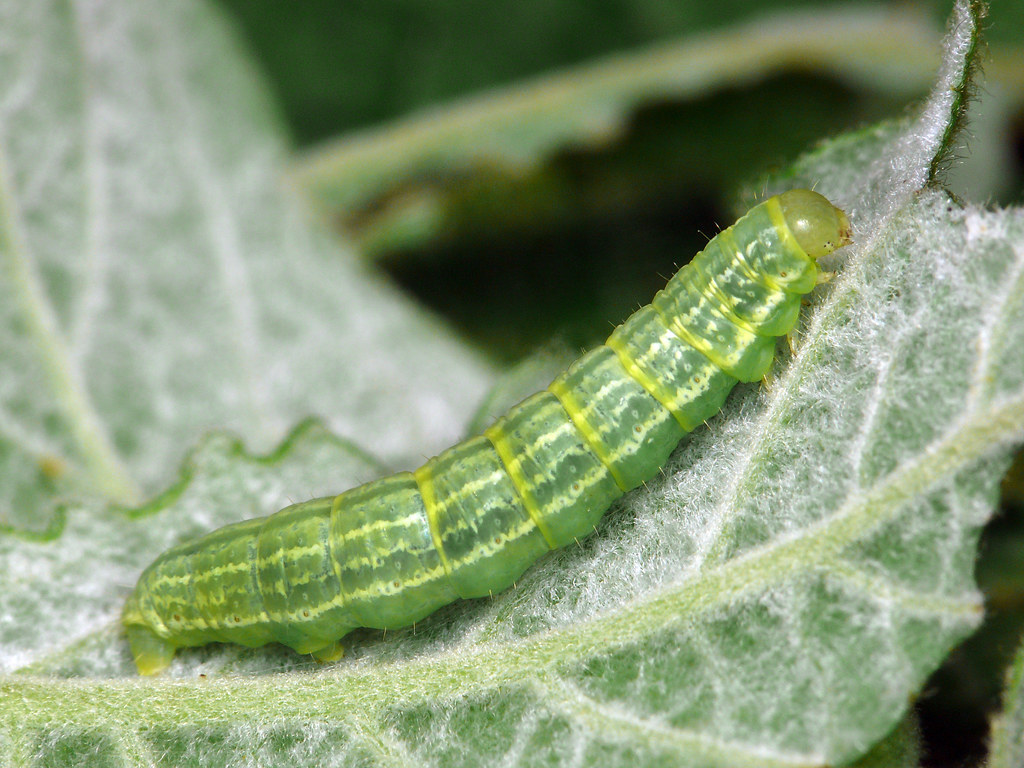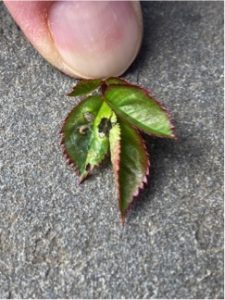
Buggin’ Out In The Northeast: First Signs Of Pests In The Garden
As winter fades into the past and spring takes hold, our gardens begin to show signs of life. This is a very exciting time of year after the long winter months of brown and white colors, it is finally time to see our beautiful flowers begin to emerge. The cold, winter color pallet is beginning to be overtaken by vibrant yellows from forsythia, shades of purple from the wild violet, and green hues of the willows. Unfortunately, we are not the only ones happy about the changing of the seasons.
Common pests are emerging and hatching just in time to enjoy the flavors of our ornamental gardens. I enjoy Being in my gardens almost every day. However, once or twice a week I dig in and get up close and personal with my plants. Scouting for pests is one of the best ways to stay ahead of potentially serious problems, especially when it comes to invasive insects. This weekend while scouting, I found 2 issues that required intervention. First, I spotted winter moth larvae (Operophtera brumata) feeding on my roses. Another pest I noticed as I walked through my emerging perennials was the lily leaf beetle (Lilioceris lilii). Both pests are invasive insects.
Late last fall between Thanksgiving and Christmas the adult winter moth was laying eggs on the stems of their preferred food sources. Winter moth eggs hatch early in the spring and the larvae will feed on a wide variety of plant material. When numbers are high enough, they can cause serious damage to large maple and oak trees. When populations are low, they are not a serious threat to our mature trees but they are still a threat to our ornamentals and fruit crops.

When winter moths hatch, they crawl up the stems and into the buds where they begin to feed. This can be particularly damaging to apple trees, blueberry bushes, and roses. Thankfully, there is now a natural predator that is keeping large populations of this pest under control. The Parasitic fly (Cyzenis albicans) was introduced to manage the population of winter moth. This has saved our forests but we will still need to manage them in our gardens.
Luckily this can be easily done. Winter moth larvae can be easily controlled with AzaSol, an OMRI certified organic insect growth regulator. Simply mix ½ tsp in 1 quart of water and spray the solution onto plant and pest. If needed re-apply in 7-10 days if the pest is still present.
Lily leaf beetle adults emerge as soon as the lilies begin to grow. The Adult beetle is bright red and easily identified. The beetle is native to Europe and was first discovered in Cambridge, MA in 1992. It has spread throughout the Northeast and has been a pest issue ever since. Both the larvae and the adult beetle feed on the foliage of lilies and if left untreated will completely defoliate the plant.

The adult beetles will lay their eggs on the undersides of the lily leaves in May. One female beetle will lay between 250 and 450 eggs. The eggs will hatch about 4-8 days after being laid. The larvae are slug-like in appearance with soft, plump orange, brown, yellowish, and even greenish bodies and black heads. They will feed on the foliage and flower buds for 16-24 days; this is the most destructive life stage of the beetle. After feeding they will drop into the soil pupate for 16-22 days and emerge as an adult and feed for the remainder of the season before crawling into a sheltered area such as mulch, soil, or leaf debris where they will overwinter. It is critical to get early management of this pest as it can easily get out of hand if left on its own. To treat for this pest, use the same mix that was used for the winter moth (½ tsp Azasol per quart of water) and treat every 7-10 days if the pest is present.
Throughout the season there will be many insects that want to feed on our plants. It is important to know the good from the bad. Many insects will be on our plants that are beneficial to us and provide a natural form of management from the harmful insects. Always identify the problem before treating or you may be doing more harm than good. With consistent monitoring of your garden you can stay ahead of the problems and be able to choose the best management options.
Happy gardening!
Kevin Brewer, Arborjet Northeast Technical Manager
ISA Board Certified Master Arborist NE-6964B


Sorry, the comment form is closed at this time.